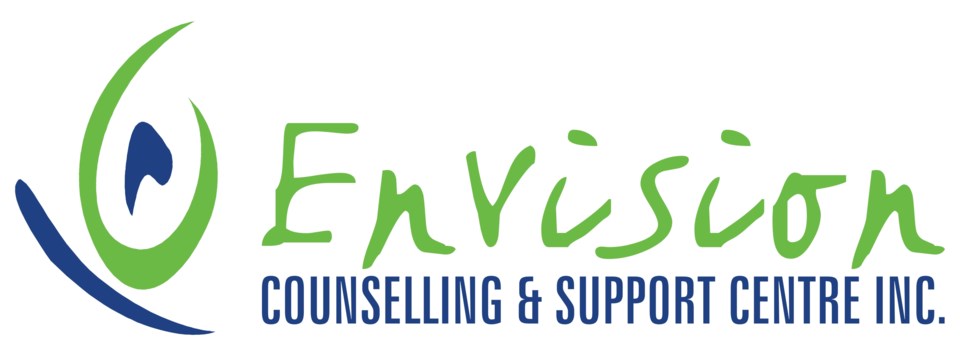After two years of surveys, meetings and discussions, the Envision Counselling and Support Centre has wrapped up its cyber violence project.
Project co-ordinator Juli Dzuba filed her final report on the project in late May, with details on their findings and the public’s thoughts on cyber violence.
“I would say we got a pretty positive response about what we had been doing in the community, but we also got responses about what we could do in the future and how we could continue the project moving forward,” said Dzuba. “That, I found, was really beneficial.”
The cyber violence program started about two years ago with a needs assessment, which included online and written surveys, focus groups and meetings. It allowed Envision to determine areas where they needed to focus, who they wanted to work with, and understand areas of strength and weakness in the area.
From there, they took the information, analyzed the data, and formed a strategy based on what they found.
“Our strategy revolved around education and partnerships within the community, of people we could work with to expand knowledge of cyber violence, and to create a centralized place for resources,” said Dzuba.
They made presentations in the community, held information nights for parents, gathered resources, and dedicated a space on Envision’s website for cyber violence.
Then there was another round of data collection, and finally the report was filed.
Dzuba estimates they received nearly 300 surveys in the first round of data collection. The second round had fewer responses, but Dzuba said that was to be expected.
People also provided Envision with advice on what they could do if the agency embarks on a similar project again. The first was to expand their information gathering to the younger grades. Envision worked with students in grades 7 to 10. They would also visit more schools.
“We got a few enquiries from teachers and parents, wondering if we could get into younger grades,” said Dzuba. “And we have found resources and stuff that specifically target those age groups, so it’s definitely a possibility for us.”
They would also like to expand their reach beyond the Estevan area. It would mean spending more time in Weyburn and in some of the smaller rural communities.
There would also be greater engagement with adults.
“We focus heavily on youth for the project, so we know as technology evolves and develops, parents are always going to want to keep up with what their children are going through online, and how everything’s evolving,” said Dzuba.
Dzuba believes cyber violence is an ever-changing issue, and so one-off projects and strategies are not going to curb the issue. It’s a matter of educating the public and helping them understand about its nature.
“We have to keep engaging people and we have to keep talking about it, and keep it present, if the project is going to be helpful in understanding and keeping those preventative measures against cyber violence out there,” said Dzuba.
Estevan has a problem with cyber violence, she said, but it’s an issue that is prevalent everywhere. And she predicts that everyone will encounter it at some time in their lives.
She stresses that it’s important for people to be the same online as they are off-line.
“Just because you get behind a screen doesn’t mean you get to be a mean person, and say things you normally wouldn’t say off-line,” said Dzuba. “For some reason, some people just think that as soon as they get behind a screen, they can just be a totally different person, and be horrible to other people.”
Now that the project has wrapped up, Dzuba will be remaining with Envision, as she will be working as their outreach and volunteer co-ordinator.
The cyber violence project was made possible through a grant from Status of Women Canada. And while Envision didn’t receive a followup grant for cyber violence initiatives, they will continue to provide programming and resources for cyber violence.




